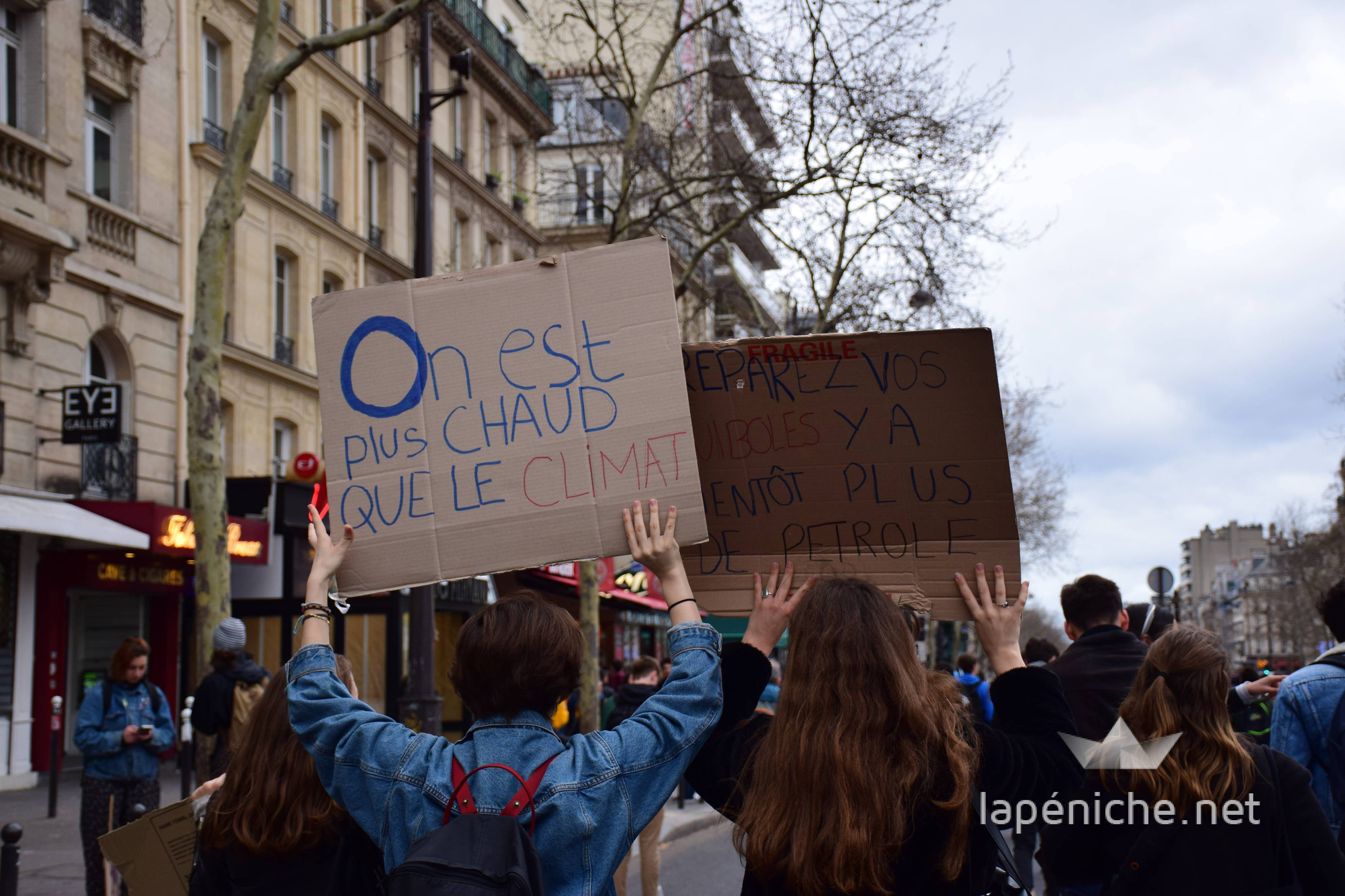Conference with Salome Zourabichvili: Georgian President makes a plea for Europe
On Monday February 18th, Sciences Po had the honour of hosting an alumni and former professor turned President of Georgia, Salome Zourabichvili, for a 60-minute conference, three months after her election. Amid an impressive security and media coverage, the President gave her vision of the future of the country, a future which she resolutely sees in Europe.
The event started with opening words from Sciences Po director Frédéric Mion, in which he introduced the audience to what he described as the President’s « unique and exceptional career« . The daughter of Georgian immigrants who fled after the Soviet invasion, she became a French diplomat before being appointed Minister of Foreign Affairs in Georgia, and was then elected president. Besides this prestigious path, Mr Mion also proudly looked back on the President’s career at Sciences Po, both as a student and as a teacher, where he couldn’t help but notice her reputation as a rather shy teacher, which hadn’t prevented her from being elected to the highest office in her country.
Mrs. Zourabichvili then sought to explain to the audience exactly where and what was Georgia, this “small and very strange country” located on the shores of the Black Sea, squished in the friendly neighbourhood of Russia, Turkey and Iran. For her, Georgia was in itself “a symbol that anything can happen”.
In what she intended to be a moving speech, she recalled the many times the country had been invaded, its capital Tbilissi burnt down, its society shaken by 80 years of totalitarianism, and yet how despite these traumatic events, the country kept moving forward and rebuilding itself, thanks to « its unique culture and strong sense of identity ». Faced with the challenges of suddenly becoming free and open to the rest of the great big globalised world, she proudly told the audience how valiantly the citizens of her country, and especially the women, had reacted, despite the difficulties of immigration and open markets.
Yet in this globalised world and unstable environment, Georgia is looking for partners. For Mrs Zourabichvili, the Georgian identity is directly linked to Europe. In a resolute plea, the president invoked the exchanges dating back to the 15th century, the shared proximity of the Black Sea and the connection between the former president and European leaders to make her most important point, a determined appeal for Europe to hear her calls for a closer union.
Unabashed by the turmoil within the European Union and the apparent disregard for her country’s requests, the former diplomat showed her determination to achieve this closer integration. “We shall invade the union from inside” was how she labelled her strategy of joining first the Europe of culture, then the Europe of transport, and reinforcing bit by bit her bonds with the Union. “If an agreement has been negotiated with the Brexit, I don’t see why it couldn’t be applied to Georgia”.
This connection seems especially necessary from a security perspective. Indeed, Georgia is not located in the merriest of locations, as the President quickly reminded the audience. Tensions at the Ossetian border with Russia remain strong, and Moscow “keeps playing with Georgia’s nerves” with its provocative behaviour. The openness and militarisation of the Black Sea (“which cannot become a sea for confrontation”) is another difficult subject. This led the President to praise the EU force that had been sent there, and reinforced her argument that closer bonds were necessary. She claimed it was only through alliances such as this one or NATO, with which she runs military exercises in the Black Sea, that Russia could be kept in check and shown its actions will be met with consequences.
“Georgia knows what it wants and where it belongs”. There are “no other perspectives, we will continue in that direction, whatever the difficulties”. The country’s president indeed gave a powerful account of this small country’s difficult position in the world, making it appear almost heroic in the face of such adversity, during a conference that appeared as a plea, if not an advertisment, for her country. Upon leaving the conference, one could almost feel a sense of sympathy for this small country stuck between giant belligerent neighbors, and hope, despite the unfriendly odds, that Europe would find the time and the care to look after its neighbour.
Adam Galametz
